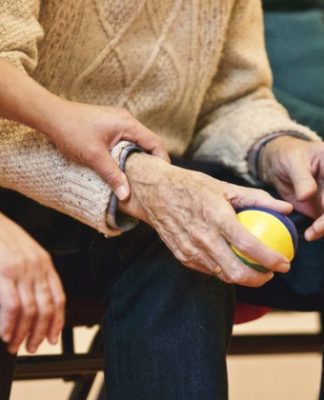I may get some flak for my perspective. However, at this point I’ve dealt with this topic to the point that I think I’ve had enough. There is an underlying system of spousal/partner abuse I have observed with many of the couples I see. For the most part, it’s not addressed in media and the field of psychology. I’m not saying this is a norm. What I am saying is that it seems to happen so much it seems to be “fact” more than “fiction”.
Domestic violence gets more press but over the last few years I’ve begun to see there’s a great deal of emotionally abusive dynamics that are prevalent in marriages that do not have physical violence. In these situations, many wives report experiencing a great deal of cognitive dissonance because they’re unhappy and want to leave their marriages. They’re hurt but they often have great difficulty explaining why. Sadly, while the majority of this abuse occurs when a male abuses his wife. I should say females who emotionally or physically abuse husbands also exist.
I’ve spoken on this topic at several conferences because a person who doesn’t recognize they’re being abused, doesn’t know to tell a clinician about this in individual or marriage counseling. For example, it is the woman who tenses up when she hears her husband’s car pull into the driveway. It becomes natural to wonder what mood he’s going to be in today. It doesn’t matter that she’s had a fabulous day, or that the house is meticulously clean, or that she’s won the lottery. All that matters is that if he’s had a bad day, his mood begins to define her day as well. God forbid if she believes that her good news or accomplishment is meant to alleviate his frustration. Many emotionally abusive people will punish their victim for having or experiencing anything other than what the abuser believes she should have.
Emotional abuse leads to what Dr. Patrick Carnes calls a ‘betrayal bond’ (Carnes, 1997). Dr. Carnes’ book is titled, “The Betrayal Bond: Breaking Free of Exploitive Relationships”. In the beginning of this book he recalls when he was in graduate school and his relationship with his live-in girlfriend almost ended his academic career. To paraphrase, he did not understand why he couldn’t leave her. He was doing his best to make sure it was a good relationship for her. This included financially supporting her. Despite his efforts, she was completely dysfunctional in the relationship. Basically, she was slowly eroding his sense of self because he was so involved in loving and understanding her that his studies were beginning to suffer. It was not until his graduate professors sat him down and warned him of their concerns, that he understood he needed to make a choice (Carnes, 1997). Some language this connection as a ‘trauma bond’. Bishop T.D. Jakes and Pastor Paula White define this as a ‘negative soul tie’.
In my presentation, I explain this ‘bond’ as similar to Stockholm Syndrome. Stockholm Syndrome dates back to 1973 when media heiress Patricia “Patty” Hearst was kidnapped. America was surprised when she appeared with her captors in bank robberies. It seemed to appear that she was in no apparent danger and was free to leave if she chose to do so (Graebner, 2015). The Patty Hearst of 1973 had the same mindset of Patrick Carnes in 1974. They were both in inexplicable love with their abusers and there were no scars to show why this dedication was irrational.
Before I dig deeper, I need readers to understand this background in order to appreciate why this underlying fire needs to be quelled. An emotional trauma bond is similar to the connection an abuser and their spouse have in a physically abusive relationship. There are three phases with both. There’s first the ‘honeymoon’ phase where the couple is in love and all’s well with the world. The second aspect of this cycle can either manifest as a slow build-up or an impulsive rejection. Either way, the abuser has something that occurs in their lives that sets off a release that leads to the last phase. This emotional ‘explosion’ seems to be the catalyst that solidifies this dysfunctional connection.
In the beginning of most abusive relationships, one codependent person has learned to be manipulative. The other codependent person has learned to be manipulated. In the honeymoon phase, they both ignore all the signs that indicate that they’re actually in an unhealthy relationship. Love is truly blind. Dopamine, serotonin, oxytocin, and endorphins create a powerful love cocktail. Drunk on love, the abused and the abuser ignore micro-aggressions and/or triggers that should tell them that things are not going well. Essentially, both ignore insecurity triggers until the explosion where the abuser reacts to past triggers in the present or skewed misperceptions.
With the explosion phase, the abuser often acts to control fear (False Evidence Appearing Real). The abused simply wants peace. She’s usually so much into what’s going on with the abuser that she usually and repeatedly puts herself aside. After the explosion, motivated by avoiding shame, guilt, and anxiety, both want to ignore what happened. So they do…. Communication is never resolved. The REAL issue is never addressed. Ironically, the abused person is usually the one who apologizes for the abuser’s misperceptions, which in turn rewards him for his negative behavior. In a physically abusive relationship bruises and scars are ignored or covered. After the explosion, the simply cycle begins to repeat itself. In an emotionally abusive relationship there are no scars, which can easily shift this cycle from dangerous to deadly.
Recently, Jenavieve Hatch mentioned something similar in her Huffington Post blog. A Twitter blogger created the hashtag #MaybeHeDoesntHitYou (Hatch, 2016). Similar to what I’m explaining, women in emotionally abusive relationships tweet their perspective of this pathology from the abused person’s point of view. I mention this because this article linked me to a related blog that mentions 98% of domestic violence cases include financial abuse. It also mentions this dynamic as the number one reason women remain in an abusive relationship. This includes emotional abuse. The abuser controls the money, which leaves their spouse with no financial resources to leave (Huffington Post, 2016).
The 98% previously mentioned is an all-inclusive statistic. If it’s a military family, mandatory transiency greatly contributes to these abusive dynamics. Most military spouses are usually young ladies who do not have the comfort of having mom or family live down the street. Some don’t have driver’s licenses. Some are fresh out of high school and unemployed. This means there’s no portable career to pack in those moving boxes. By the time she becomes accustomed to a new area, it’s usually time to move again. It’s hard to establish a career with these factors. Add in family health or mental health deficits and this paradigm becomes more complicated. Many are newly married, young girls learning to be an adult at the same time they’re learning to be a wife and mother. When they transition from home to husband, there’s rarely a foundational sense of self.
All of this occurs while repeatedly watching their spouse sail, march, or fly away from the family in order to serve duty and honor. Some can’t handle the stress and go back to their parents. Out of love and dedication, most put on their superwoman cape and accept the mission to be “everything” to “everyone”, and “nothing” to themselves. This is when she forgets about herself and who she is because she’s given up her family, security, future plans, and dreams in order to be a “good” wife or mother. God forbid she’s never had this role or appropriate family roles socially modeled for her. At this point she’s left to be defined by her potentially dysfunctional spouse. Besides their children, he’s all she has that’s familiar.
Excuse the military focus but her husband may be a young man that may have joined because of the need to do something with his life. I’d venture to say that those who enlist fresh out of high school rarely come in with a career plan. Purposeful plans usually follow later when he’s had a chance to work in areas of interest. It’s then that rank and advancement are pursued. With the right dedication, it’s likely he’ll make rank and be seen as a “good provider”.
However, it also doesn’t help if he’s never had a healthy model of family or manhood defined for him. He becomes accustomed to his career and wife allowing him to come and go as he pleases. He’s used to everyone following his lead and doing what’s best to build his career. They pursue his career goals because he is the breadwinner for the family. Now think, if this is someone who comes from an abusive family, who has a low sense of self- or self-esteem, or has not firmly defined himself, this dynamic provides A LOT of power. Yes, I know it doesn’t happen with everyone but by my experience this mindset does seem to be a fundamental expectation across all ranks.
Overall, it doesn’t matter whether the family is military or civilian. It doesn’t matter if they’re a young couple or an older couple. It bothers me that this kind of abuse is so silent it seems to be taken as a norm. These are some of the statements from young ladies whose marriages fit this profile. They are not just stay at home moms. Some are educated and work outside the home as well.
“He told me that I have to pay half the bills. But he makes two/three times more money than I do.”
“He said that I’d never leave him because I couldn’t afford my mental/health care payments if I was on my own.”
“He said that I’m at home all day and I contribute NOTHING to the household.”
“He told me that I just married him for his money.”
“He said he could see who he wants and if I don’t like it, I can go home. But he won’t let me take the kids.”
“He deployed for a year. I have to explain why I need money before he will send/transfer it.”
“He doesn’t like my body or want sex after the kids.”
“He said what ‘little’ money I give is not enough.”
“It’s like he resents me for not having a career/job but he won’t let me go to school/work.”
“He put me out the house/car. He said I ‘disrespected’ him.”
“He got mad when I asked for_____ for our child/house/car/family but he’s always getting expensive stuff for himself.”
“He often tells me I’m a burden.”
If she’s actually working or getting an education. Then I usually hear he thinks she’s only with him until she finishes her degree or gets a better job. He may even begin to punish her for a thought process that she has never considered. Devaluing, insulting, or denying occur until she’s mentally beaten down. After that you have someone acting in a role defined by a husband or spouse whose own emotional foundation may not be solidified or mature. Either by lack of structured, positive family dynamics before marriage and/or by observing how other abusive men act, young minds begin accepting skewed perceptions of manhood and family as the norm. His wife and children become actors in an unspoken play. You’re punished for not knowing your lines. The longer these dysfunctional cycles are prevalent, the worse things have the potential to become. It’s not all of why couples divorce at the end of a person’s military career but it’s surely one of the catalysts. In the same manner, it’s not the main reason why women commit murder or suicide in such relationships but it’s SURELY a catalyst.
This is my call to clinicians and community health centers. My wish is that they not only understand the dynamics of emotional abuse but also the underlying factors that set such families up for failure. Verbal and emotional abuse digs deep. It doesn’t matter if she has no physical bruises. Mental scars are resilient. Eventually she will get tired of him being passive-aggressive or just out-and-out intentionally mean. She may leave the marriage lost and hurt. She may do something harmful to herself. Either way, she’s still confused. Even after leaving, many end up in the same situation with a similar persona. The flip side of this is the abuser’s skewed power perception. He’ll blame and point fault at her, rarely understanding he’s part of the root cause.
Interventions should repeatedly address personality deficits, dysfunctional family of origin expectations, and communication gaps that break emotional bonds. Also consider reinforcing the strength and resilience of women who willingly assume all the responsibility for holding the family together. Yet life has told them they have no worth. The abuser and the abused may need classes or treatment for fractured self-esteem and broken hearts that often started before either left their childhood home. It cannot be good to find out that life is just a continuation of the abuse one thought was left behind.
Someone please create something to help these men, young and old, understand she’s not after your money or power if it was NOT in place when she married you. This means it’s something you built together. How arrogant of you to think she wants you for what you didn’t have until she sacrificed herself to help you. Yes, it was you that went to work. Yes, I know, you could have done it alone. But you didn’t. Doesn’t her love, sacrifice, and dedication count for anything? You can’t give a person back the time they gave you. That makes her gift priceless. Help him understand that if you wouldn’t treat your friend/priest/command that way, what gives you a right to treat to your wife and children in such a manner?


 Chevette Alston, Psy.D., has earned two bachelor degrees from North Carolina State University (Multidisciplinary Studies & Sociology), one masters degree in Counseling from UNC-Chapel Hill, and a Clinical Psychology doctorate from Capella University. She is currently pursuing a masters in divinity at Regent University. Dr. Alston has almost 20 years of experience in mental health counseling and treatment. She has also been an adjunct instructor for schools such as Johnson & Wales, Tidewater Community College, Regent University, and currently South University.
Dr. Alston is licensed as an LPC in North Carolina and Virginia. She is also trained and Board eligible as a clinical psychologist in the Commonwealth of Virginia. Her clinical skills include EMDR, hypnotherapy, and trauma training. She is currently the director for the Center for Attention Deficits at Christian Psychotherapy in Virginia Beach. Other duties include psychological assessments for children, adolescents, and adults. Dr. Alston’s target populations are women's issues, marital counseling, AD/HD, depression, trauma, anxiety, stress, grief, and parenting skills. She sees a variety of clients in all age ranges and cultures. In addition to clinical supervision, Dr. Alston is also an occasional co-host for local radio shows and is available for public speaking.
Esiri Ministries is her grassroots mental health initiative. The women’s empowerment organization was incorporated in April of 2013 and is a 501(c)(3) charity organization. ESIRI is a non-profit venture that is dedicated to the mental health and well-being of all, but the specific population targeted is women of all ages. In addition to psychological treatment, a variety of classes, networking, and conferences for self-improvement and education are offered as well. Contact esiri-va.org or esiri@outlook.com for questions or for more information.
Chevette Alston, Psy.D., has earned two bachelor degrees from North Carolina State University (Multidisciplinary Studies & Sociology), one masters degree in Counseling from UNC-Chapel Hill, and a Clinical Psychology doctorate from Capella University. She is currently pursuing a masters in divinity at Regent University. Dr. Alston has almost 20 years of experience in mental health counseling and treatment. She has also been an adjunct instructor for schools such as Johnson & Wales, Tidewater Community College, Regent University, and currently South University.
Dr. Alston is licensed as an LPC in North Carolina and Virginia. She is also trained and Board eligible as a clinical psychologist in the Commonwealth of Virginia. Her clinical skills include EMDR, hypnotherapy, and trauma training. She is currently the director for the Center for Attention Deficits at Christian Psychotherapy in Virginia Beach. Other duties include psychological assessments for children, adolescents, and adults. Dr. Alston’s target populations are women's issues, marital counseling, AD/HD, depression, trauma, anxiety, stress, grief, and parenting skills. She sees a variety of clients in all age ranges and cultures. In addition to clinical supervision, Dr. Alston is also an occasional co-host for local radio shows and is available for public speaking.
Esiri Ministries is her grassroots mental health initiative. The women’s empowerment organization was incorporated in April of 2013 and is a 501(c)(3) charity organization. ESIRI is a non-profit venture that is dedicated to the mental health and well-being of all, but the specific population targeted is women of all ages. In addition to psychological treatment, a variety of classes, networking, and conferences for self-improvement and education are offered as well. Contact esiri-va.org or esiri@outlook.com for questions or for more information.



















